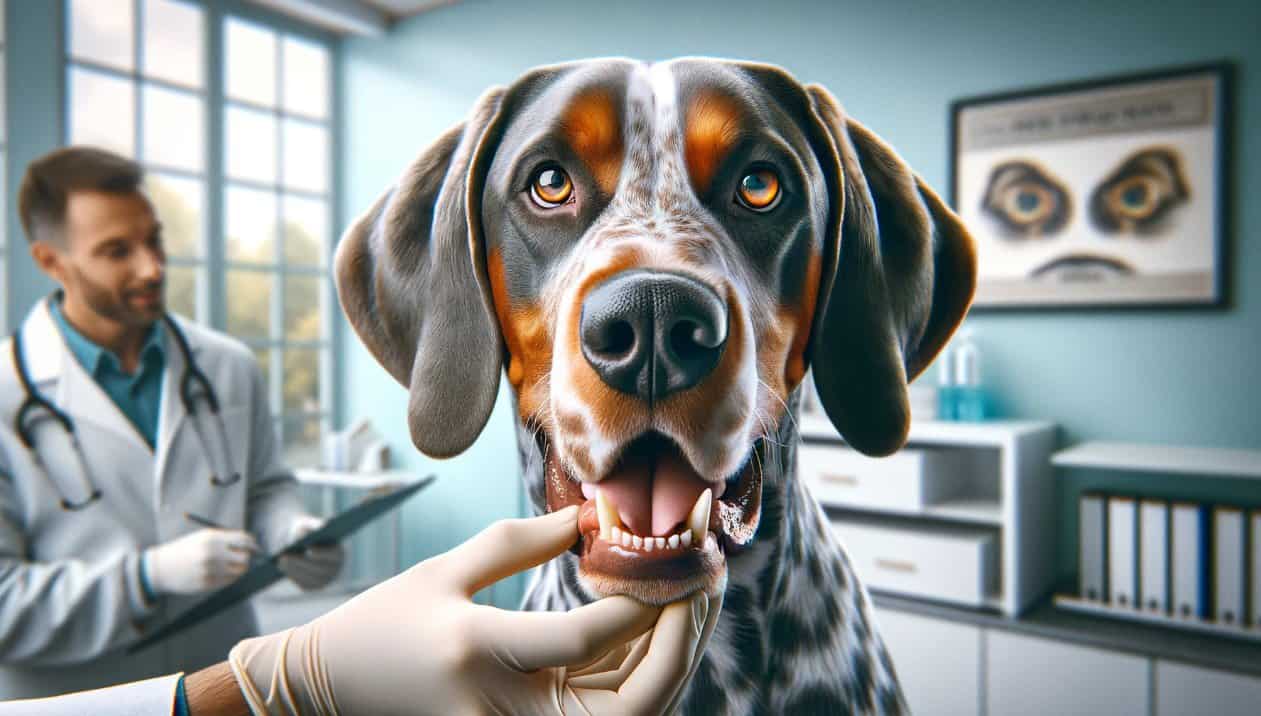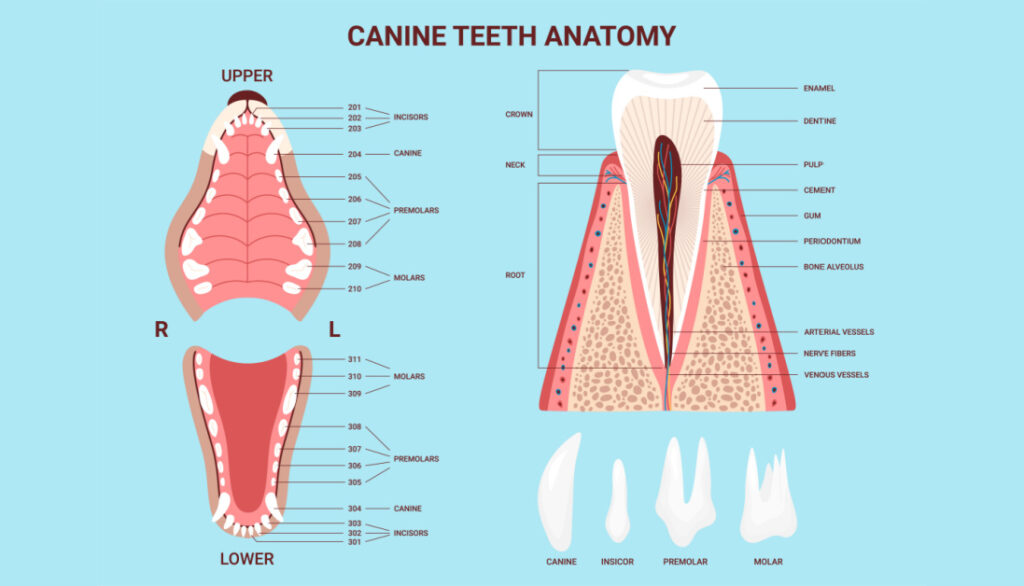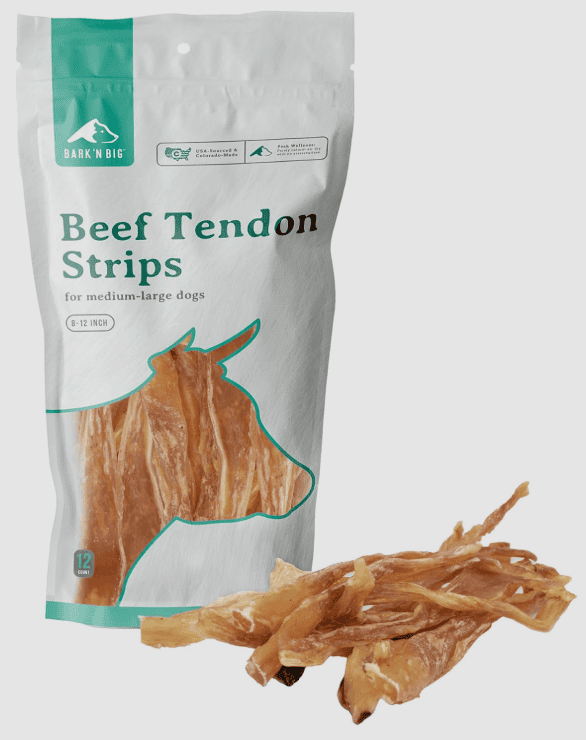Hi there, dog parents! I’m Dr. Candy, your friendly holistic veterinarian. Today, let’s talk about a topic that’s close to my heart – Braque Saint-Germain Dental Health. Now, you might be wondering, “Why dental health, Dr. Candy?” Well, let me tell you, oral hygiene is not just about fresh breath and pearly whites. It’s a crucial aspect of your Braque Saint-Germain’s overall health.
Just like in humans, poor dental health in dogs can lead to serious health complications, including heart disease and kidney problems. And when it comes to our beloved Braque Saint-Germains, they are not immune to these issues. So, it’s our responsibility to ensure they have the best dental care possible.
Throughout this article, we’ll explore the signs of dental disease, common dental health issues specific to Braque Saint-Germains, conventional and holistic treatments, and my recommended dental chews and products. So, let’s get started on this journey to better oral health for your Braque Saint-Germain!

Signs of Dental Disease in Braque Saint-Germain
As a holistic veterinarian, I understand how crucial it is to maintain optimal oral health for your Braque Saint-Germain. The mouth is the gateway to the rest of the body, and poor dental health can lead to a myriad of serious health issues. Recognizing the signs of dental disease is an essential first step in safeguarding your dog’s overall health.
Bad breath is often the first noticeable sign of dental disease in dogs. While many pet parents might dismiss this as normal ‘doggy breath’, persistent bad breath could indicate a serious underlying issue. This is especially true for your Braque Saint-Germain, a breed known for its active and energetic nature. If your dog is less enthusiastic about playtime or meals, this could be due to oral discomfort.
Another common sign of dental disease is a change in eating habits. If your Braque Saint-Germain is refusing to eat hard food or shows signs of discomfort while chewing, this could indicate a dental issue. You may also notice your dog drooling excessively or pawing at the mouth, both of which are common signs of oral discomfort.
- Discoloration of teeth or visible tartar
- Red, swollen or bleeding gums
- Loose or missing teeth
- Difficulty eating or loss of appetite
- Excessive drooling
It’s important to remember that dogs, especially active breeds like the Braque Saint-Germain, are experts at hiding pain. Therefore, regular at-home dental checks are essential. Look for signs of plaque or tartar buildup, which appears as a brownish substance on the teeth, especially along the gum line. Red, swollen, or bleeding gums are also a sign of dental disease.
Loose or missing teeth are another clear sign of dental health issues. If you notice any of these signs, I recommend scheduling a visit with your holistic veterinarian as soon as possible. Early detection and treatment of dental disease can prevent more serious health problems down the line, ensuring your Braque Saint-Germain stays healthy and happy.
Remember, Braque Saint-Germain dental health is not just about fresh breath and clean teeth. It’s about providing your furry friend with a healthy, pain-free life.
Common Dental Health Issues In Braque Saint-Germain
As a veterinarian, I often see a variety of dental health issues in Braque Saint-Germain dogs. These active and intelligent dogs are prone to certain oral health problems that, if left untreated, can lead to serious complications. Here are some common dental health issues you should be aware of:
- Periodontal Disease: This is an inflammation of the tissues supporting the teeth, often caused by plaque and tartar buildup. It’s the most common dental issue in Braque Saint-Germain dogs.
- Bad Breath: Also known as halitosis, bad breath can be a sign of underlying dental health issues in your Braque Saint-Germain. It’s often a result of bacteria buildup in the mouth.
- Tooth Decay: Just like in humans, dogs can also suffer from tooth decay, often caused by a diet high in sugar and poor dental hygiene.
- Gingivitis: This is an inflammation of the gums and is often the first stage of periodontal disease. If left untreated, it can lead to tooth loss.
Remember, Braque Saint-Germain dental health is a vital aspect of their overall well-being. Regular check-ups, a balanced diet, and good oral hygiene can help prevent these common dental issues. As a dog parent, you play an essential role in ensuring your Braque Saint-Germain’s teeth stay healthy and strong.

Conventional Dental Health Treatments for Braque Saint-Germain
When it comes to Braque Saint-Germain dental health, it’s important to be aware of conventional treatments that can help maintain your dog’s oral hygiene. These treatments are critical for preventing and treating dental diseases that are common in this breed.
Anesthetic Dental Cleanings
One of the most effective ways to ensure your Braque Saint-Germain’s dental health is through regular anesthetic dental cleanings. This involves your vet thoroughly cleaning your dog’s teeth while under anesthesia. This method allows vets to clean areas that are not visible or accessible during a standard awake dental exam. It also allows for a more comfortable experience for your dog, as dental cleanings can be uncomfortable or even painful.
However, it’s important to understand that while anesthetic dental cleanings are highly effective, they do come with potential risks. These include the risks associated with anesthesia, such as heart problems, drug sensitivities, and seizures. Therefore, it’s crucial to discuss these potential risks with your vet before opting for anesthetic dental cleanings.
Potential Individual Health Obstacles
When considering Braque Saint-Germain dental health, it’s also important to be aware of potential individual health obstacles that could impact your dog’s oral hygiene. These can include pre-existing conditions, such as heart problems, which could make anesthesia more risky. Other potential obstacles can be drug sensitivities, which could cause adverse reactions to medications used during dental procedures.
Additionally, age can play a significant role in your dog’s dental health. Older Braque Saint-Germains might have a higher risk of developing dental diseases, and they may also be more sensitive to anesthesia. Therefore, it’s crucial to take these factors into account when considering dental treatments for your dog.
In conclusion, when it comes to maintaining your Braque Saint-Germain’s dental health, it’s critical to be aware of the conventional treatments available, as well as potential individual health obstacles. By staying informed and proactive, you can ensure that your dog maintains a healthy and happy mouth.

Dr. Candy’s Holistic Approach To Oral & Dental Health
As a pet parent, you’re probably always looking for the best ways to keep your furry friend healthy and happy. When it comes to your Braque Saint-Germain’s dental health, I’m here to share a holistic approach that can help combat common oral health issues. This approach combines a balanced diet and the use of oral health-specific probiotics.
Diet- Low Carbs, Avoid Added Sugars, Enzymes In Fresh Food
The first step to maintaining your Braque Saint-Germain’s dental health is a balanced diet. Just like in humans, a diet high in carbohydrates and sugars can lead to dental problems in dogs. These substances stick to the teeth, providing a breeding ground for bacteria that can cause plaque and tartar build-up.
- Low Carbs: Opt for dog food that is low in carbohydrates. This helps to reduce the amount of residue left on your dog’s teeth after eating, thereby reducing the risk of plaque development.
- Avoid Added Sugars: Many commercial dog foods contain added sugars, which are not only unnecessary but can also contribute to dental disease. Always check the ingredients and opt for sugar-free options.
- Enzymes In Fresh Food: Including fresh food in your Braque Saint-Germain’s diet can also improve their dental health. Fresh foods contain natural enzymes that can help to break down plaque and tartar. Consider adding foods like raw carrots or apple slices to your dog’s diet.
Oral Health Specific Probiotics
In addition to a balanced diet, I recommend incorporating oral health-specific probiotics into your Braque Saint-Germain’s daily routine. Probiotics are beneficial bacteria that can help to balance the oral microbiome, preventing the overgrowth of harmful bacteria that can lead to dental disease.
One product I recommend is Probiora for Dogs, an oral health targeted probiotic. This easy-to-use product can be added to your dog’s food or water and is designed to promote a healthy balance of bacteria in the mouth. Regular use of this probiotic can help to prevent bad breath, plaque, and gingivitis in your Braque Saint-Germain.
Remember, your Braque Saint-Germain’s dental health is an important aspect of their overall health and well-being. By incorporating these holistic strategies into your pet care routine, you can help to ensure that your furry friend’s smile stays healthy and bright.

Recommended Dental Chews & Products For Braque Saint-Germain
As a devoted dog parent, you might be surprised to learn that many commercially promoted dental chews are not as beneficial for your Braque Saint-Germain’s dental health as they claim to be. Unfortunately, some of these products contain harmful additives and artificial ingredients that can cause digestive issues and other health problems. Not only that, but they often fail to adequately clean your pet’s teeth, leaving plaque and tartar behind.
Moreover, some pet parents resort to using drinking water additives in an attempt to improve their dog’s oral health. However, these additives can disrupt the balance of good bacteria in your dog’s gut, leading to digestive problems.
So, what can you do to ensure your Braque Saint-Germain’s dental health?
I’m pleased to share a few of my recommended dental chews and products that are both safe and effective.
Single Source Natural Proteins
1. Tendons: These are fantastic natural chews for dogs. They’re not only tasty, but they also help to remove plaque and tartar from your dog’s teeth as they chew.

2. Raw Marrow Bones: These are a great source of natural calcium and can help keep your dog’s teeth clean. Just remember to supervise your dog while they’re chewing to prevent any possible choking hazards.
3. Bully Sticks: These are high in protein and low in fat, making them an excellent choice for dogs. They can also help to reduce plaque and tartar build-up on your dog’s teeth.

These natural chews are not only beneficial for your Braque Saint-Germain’s dental health, but they also provide them with essential nutrients and proteins.
Additional Dental Health Products
Along with natural chews, there are other products you can use to help maintain your Braque Saint-Germain’s dental health.
1. Dog Toothpaste and Toothbrush: Regular brushing with dog-specific toothpaste can help to prevent the build-up of plaque and tartar.
2. Dental Sprays: These can help to freshen your dog’s breath and reduce plaque build-up.
3. Dental Wipes: These are a great alternative to brushing and can be used to clean your dog’s teeth and gums.
Remember, maintaining your Braque Saint-Germain’s dental health is a crucial part of their overall health. By choosing the right products and sticking to a regular dental care routine, you can ensure your furry friend’s pearly whites stay clean and healthy. Your Braque Saint-Germain will thank you with lots of wet, fresh-smelling kisses!
Frequently Asked Questions
1. How can I prevent bad breath in my Braque Saint-Germain?
To prevent bad breath in your Braque Saint-Germain, it is important to maintain good dental hygiene. Brush your dog’s teeth regularly using a dog-specific toothbrush and toothpaste. Additionally, provide dental treats or toys that help clean their teeth and freshen their breath.
2. What are the common causes of bad breath in Braque Saint-Germains?
Common causes of bad breath in Braque Saint-Germains include poor dental hygiene, gum disease, plaque buildup, tartar accumulation, and oral infections. Certain health conditions or dietary factors may also contribute to bad breath.
3. How often should I take my Braque Saint-Germain for a dental check-up?
It is recommended to take your Braque Saint-Germain for a dental check-up at least once a year. Regular dental examinations by a veterinarian can help identify any dental issues early on and prevent them from worsening.
4. Can I use human toothpaste for my Braque Saint-Germain’s dental care?
No, you should never use human toothpaste for your Braque Saint-Germain’s dental care. Human toothpaste contains ingredients that are toxic to dogs if ingested. Always use toothpaste specifically formulated for dogs, which can be found at pet stores or recommended by your veterinarian.
5. Are there any home remedies to improve my Braque Saint-Germain’s bad breath?
While home remedies may provide temporary relief, it is essential to address the underlying cause of bad breath. Regular brushing, providing dental chews or toys, and maintaining a balanced diet can help improve your Braque Saint-Germain’s breath. However, consulting with a veterinarian for a proper diagnosis and treatment is recommended.
